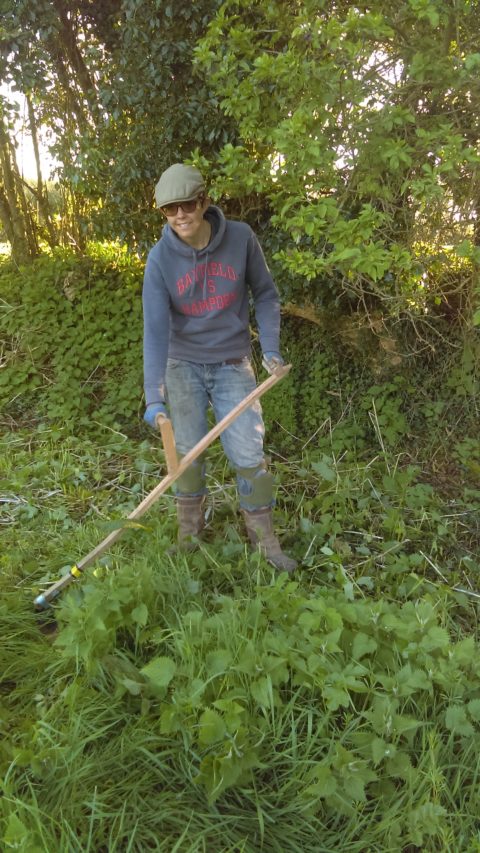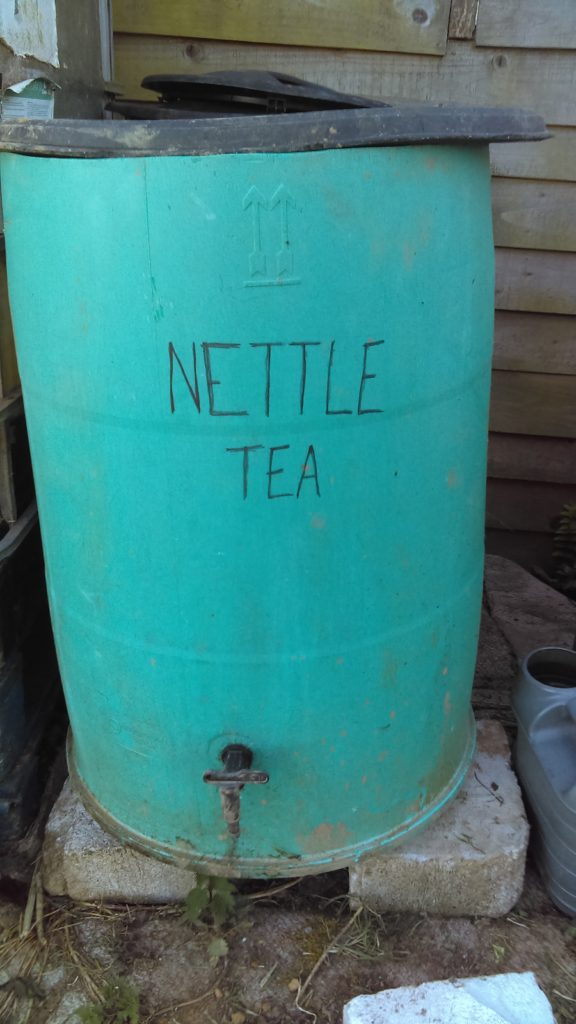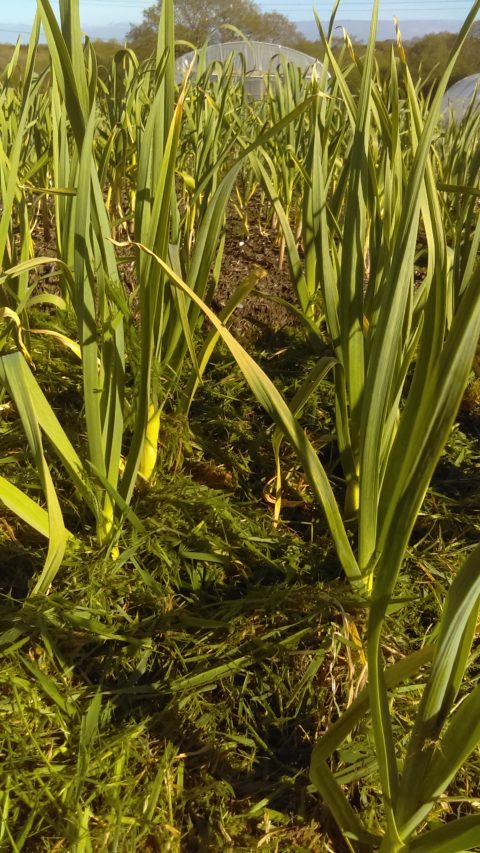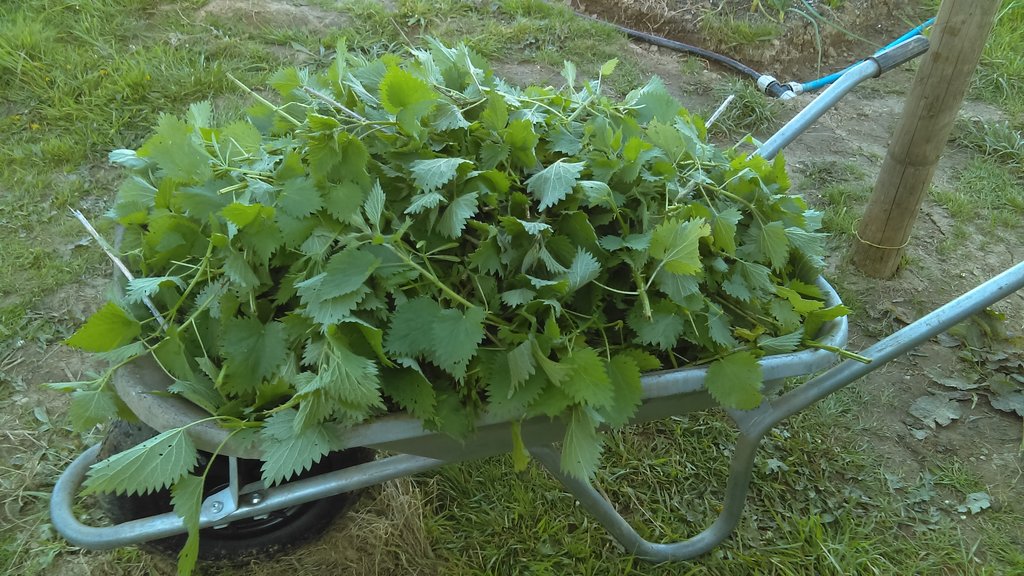It all started with a nettle sting. We’ve been busy fertilising our soil but not in the way most food is grown. To grow sustainably, organically and pragmatically we are using a range of sources of fertility that we recommend to any keen grower.

There are three main nutrients that plants need, nitrogen, phosphorous and potassium, often affectionately called NPK. Plants need these in varying levels, amounts and at different times in their life cycle. They also need other nutrients in smaller and greater quantities, such as magnesium, calcium, iron and zinc.
What we try to do is provide each crop with the basics, NPK and then tailor from there according to its needs. So hungry crops such as the cucurbits (courgettes, cucumbers and squash) get plenty of manure which provides NPK throughout the growing season.
We are excited to try alapaca manure, kindly donated by the cute alpacas’ human. Little is known about alpaca poo in this climate and we are keen to compare it to horse manure. Manure is much usedby both professional and amateur growers because it contains almost the exact proportions of NPK that plants need. It also builds the proportions of organic matter in the soil, something we are always looking to increase.
The other benefit of manure over the chemicals used by agribusiness and home gardeners is that it is slow release. This means that the nutrients will be available to plants over two or more years. But back to the nettle. They are prolific, painful and potent. Nettles bring something quite different to the party. We are brewing up a nettle tea, a stinking concoction to feed our nitrogen hungry plants. Nettles are high in nitrogen and also contain iron, calcium and manganese, a powerful boost to plant growth.
To make Nettle tea
Ingredients
- Nettles, young is best, definitely before flowering
- H2O
- Container, preferably with a tap and gauze

Method
Wearing gloves collect plenty of young nettles, now is the perfect time to do this.
Place the nettles in your container, we use a water butt so we can make lots but an old bin or bucket would do.
Cover with water, not too much but enough so that all the nettles are moist. The less water you use, of course the less tea you’ll have but the stronger it will be.
Leave the tea to brew for several days or more, at least until it starts to pong. Ponging tea is good here, the more pongy the better!
Dilute your tea by 5-10 parts and water the plants.
Alternatively you can spray it straight onto the leaves of crops which you don’t eat the leaves. This will be an instant boost and your plants will love you.
You can make comfrey tea in the same way and use it likewise. Comfrey is rich in potassium, an element which influences the quantity and quality of fruit. So we will be making lots of this from our comfrey patch for our tomatoes, mmm, those delicious British tomatoes full of summer flavour…

A final source of fertility that most people have access to is grass cuttings. Grass cuttings are full of nitrogen which is quickly available to plants. You can of course compost them but you might find that mulching with them gives you a better hit of the good stuff. However be choosy what you mulch, pick plants and crops which are well established. A bit of rainy weather can make the cuttings slimy and a haven for slugs and snails, not good. Putting them around well-established crops helps reduce the risk of loosing your precious veg. We are currently putting them around our garlic which have been growing for several months and in need of a boost.
There are lots of other ways to keep your plot fertile and chemical free, we’ll write about some more soon but please do share your experience too.
